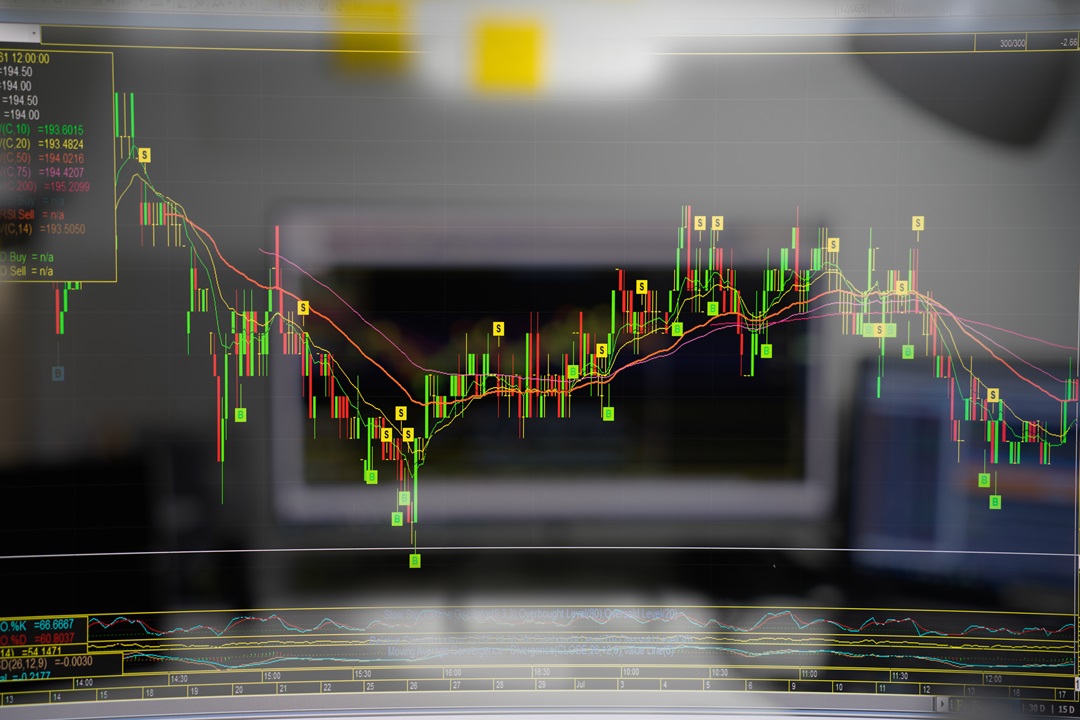Proprietary trading, more commonly known as prop trading, refers to the practice of trading financial instruments such as currencies using a trading firm's own capital, rather than capital from clients.
In forex prop trading, traders are provided with funds from a proprietary trading firm or prop trading bank to execute trades in the foreign exchange market.
Rather than trading with their own money, forex prop traders are trading with the firm's capital.
Forex prop trading allows experienced traders to trade larger positions than they could afford with their personal accounts.
The trader generates profits for the firm through their trading strategy, and in return receives a pre-agreed percentage of the profits. This system provides traders access to significantly larger amounts of capital than if they were trading retail forex with a standard broker.
It also enables traders to potentially earn much higher rewards if their strategies are profitable.
How Does Forex Prop Trading Differ from Regular Forex Trading?
There are a few key differences between forex prop trading and regular forex trading:
Capital Source
With regular forex trading, traders are using their own personal capital deposited with a retail forex broker.
With prop trading, the capital belongs to the proprietary trading firm. This allows traders larger position sizes.
Risk Exposure
In regular forex trading, losses can exceed deposited funds. With prop trading, the trader's risk is limited to losing their initial investment or entry fee paid to the firm.
Any losses beyond that come out of the firm's capital, not the trader's.
Regulation
Since forex brokers hold client funds, they are subject to financial regulation.
Prop trading firms normally do not hold client funds so may not need to comply with regulations for forex brokers. They are not considered financial entities.
Performance-Based Income
With prop trading, income is generated solely from a percentage of trading profits. Traders do not earn a salary. This closely aligns incentives to maximize profits for both the trader and firm.
Trading Hours
Prop traders have ultimate flexibility over trading hours and are not bound to brokers' operating hours since they trade the firm's capital.

What are the Benefits of Forex Prop Trading?
There are several potential benefits of forex prop trading versus regular retail forex trading:
- Access to Larger Capital - Prop traders can control much larger position sizes worth hundreds of thousands or millions compared to a standard retail forex account.
- Potential for Higher Profits - Larger position sizes means the chance for larger overall profits if strategies are profitable. Profits are then split with the prop firm.
- Performance-based Income - Traders are only paid based on actual trading performance which means they stay focused and work hard to generate trading profits.
- Education and Tools Provided - Most prop firms offer ongoing training, mentoring programs and access to advanced trading technology and platforms to give traders an edge.
- Flexible Hours - Prop traders can trade whenever the markets are active and set their own schedule without restrictions from broker operating hours.
- Lower Personal Risk - The largest risk for prop traders is the entry fee, whereas standard forex traders can lose their entire deposited capital if trading goes badly.
For experienced traders able to prove themselves, the rewards of forex prop trading are potentially life-changing. It leverages skill and experience to access profits on a whole new level.
How Does Leverage Work in Forex Prop Trading?
An important advantage of forex prop trading is the ability to use high leverage on larger position sizes due to the capital backing from the prop firm.
Leverage allows traders to control disproportionately large positions relative to the margin in their accounts.
For example, if a trader deposits $1,000 with 100:1 leverage, they could control positions worth $100,000.
Prop firms typically provide traders with maximum leverage of 50:1 or higher on standard forex currency pairs.
With a $10,000 account at 50:1 leverage, a trader could control positions of $500,000 or more.
Higher leverage means smaller pip movements in currencies can result in much larger profits than in a standard retail forex account. It magnifies both gains and losses accordingly.
That is why prop firms closely monitor leverage use by analyzing trading history and requiring strict risk management strategies like stop losses.
Their goal is maximizing profits while minimizing big drawdowns through prudent leverage policies for each trader.
For experienced traders, high leverage in forex prop trading multiplies opportunities to potentially generate large profits from well-researched strategies and solid risk controls. It is both a reward and responsibility.

What Trading Strategies are Used in Forex Prop Trading?
A wide variety of trading strategies can potentially succeed in forex prop trading due to the flexible accounts and leverage provided.
Here are some popular approaches:
Scalping - Attempting to profit from very short-term, intraday price fluctuations of minutes or less. Requires constant monitoring and high-speed execution.
Day Trading - Holding positions overnight is avoided; all trades are closed by the end of the daily session. Charts are scanned for optimal daily entry and exit points.
Swing Trading - Positions are usually held from a few days to several weeks looking for medium-term trends. Fundamental news events are actively watched for tradable reactions.
News Trading - Trades are initiated right as high-impact news is released taking advantage of typically volatile price movements. Timing and discipline are essential.
Elliott Wave Analysis - Price action is interpreted according to principles of Fibonacci ratios and investor psychology trends. Dependent on proper waveform counts and catalysts.
Those are just a few of the most common approaches seen. A skilled trader in forex prop trading will develop a strategy that plays to their strengths and suits their preferred time commitment and risk tolerance. Backtesting is also highly recommended to prove its merits.
Best Digital Bank to Do Prop Trading in Business
For a business involved in forex prop trading, choosing the right digital banking partner is important. An ideal choice is Jetonbank.
As a fully licensed and regulated bank for corporate prop trading, it provides advanced business accounts tailored for the needs of proprietary trading companies.
Some key advantages of using Jetonbank include:
- Dedicated relationship manager for guidance and support
- Multi-currency corporate prop trading bank accounts
- Flexible liquidity management and payments platform
- Competitive interest rates on multiple currency balances
- Institutional-grade security and encrypted connectivity
- Full regulatory compliance as a licensed Dominica private bank
- Ease of opening accounts remotely with video identification
With depoesit protection of up to CHF 100,000 by the Swiss depositor protection scheme, Jetonbank assures safety and peace of mind for funds. Transparent pricing and no hidden fes provide certainty for businesses. It is a premier one-stop solution for managing banking needs in today's globalized prop trading industry.
Forex prop trading represents an advanced strategy for experienced traders. By partnering with a specialized digital bank like Jetonbank, proprietary trading firms gain a stable and robust banking platform tailored to their needs.
Our corporate clients also benefit from advanced financial services and security. For businesses and traders alike, Jetonbank continues setting the standard for modern cross-border management solutions worldwide.

